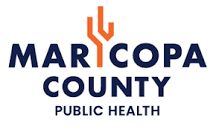After Sen. Hoffman’s failure to hear nominations for several of Governor Hobbs’ nominees to direct state agencies (and his bizarre behavior during the very few “Director’s Nominations” Committee hearings that did occur), it became clear that Hobbs’ nominees to lead state agencies wouldn’t be getting a fair shake at confirmation from the Committee or the Senate.
See: Senate committee doesn’t ‘vet’ nominees. It sabotages them
We posted a blog back then arguing that the Governor should use provisions in state law to get her nominees onto more stable ground: Time to Play Hardball with Agency Director Nominations? Here’s a Playbook. Hobbs ended up going with Option 3 in that blog post as outlined in Governor Hobbs Letter to Senate President Petersen. Hobbs first withdrew the 13 nominations of the agency directors that she had previously sent to the Senate.
See: Governor Katie Hobbs Pulls Nominees from Partisan Political Circus Created by Extremist Jake Hoffman
See: 38-211 – Nominations by governor; consent of senate; appointment
Hobbs appointed Ben Henderson as the Interim Director for each of the agencies. Mr. Henderson proceeded to name the person who had previously been nominated to be agency director to the title of Executive Deputy Director.
State Senate President Petersen sued Governor Hobbs in Maricopa County Superior Court last year, challenging Hobbs’ end-around the Senate.
Judge Blaney will hear the first round of oral arguments in court Monday at 10am in the Maricopa County Superior Court building (Room 411).
See: Civil Court Case Information: Petersen v. Hobbs Maricopa County Superior Court Case Number CV2023-019899/
My sense is this case will ultimately be appealed regardless of what Blaney decides – so it may be several months to more than a year before we have a final resolution in this important policy matter.
If the State Senate flips to the Dems or is 15-15 tie after the November election, things could change rapidly, and the case could end up being dismissed once a new Senate president is sworn in and Hoffman is discharged from the Director Nomination Committee (or it’s abolished).
I hope to be able to get a seat in the courtroom on Monday and provide an update next week.




